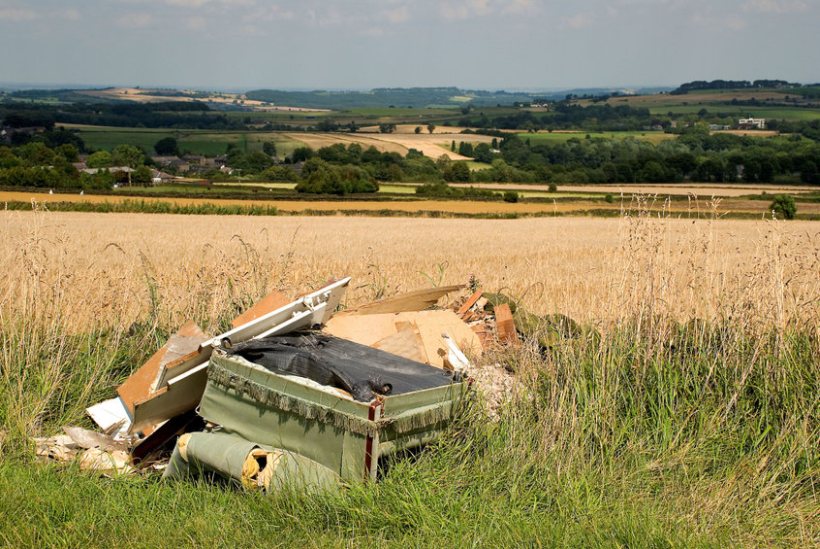
Fly tipping still a significant insurance risk for farmers despite new government proposals to tackle it, A-Plan Rural Insurance have warned.
The plans would see more robust checks on those who are registered to handle and dispose of waste, plus the introduction of a mandatory digital tracking system.
It comes after Defra reported that there were 1.13m fly-tipping incidents in England in 2020-21, a rise of 16% on the previous 12 months.
The cost to the UK is around £1bn a year, including lost taxes – and part of that has been absorbed by farmers who are left to pay for the clear-up costs when rubbish is dumped on their land.
Tim Slinger, associate director at A Plan Rural Insurance, believes they should ensure they are fully insured against fly tipping, and understand when they are liable for clear-up costs and when they are not.
“Farmers are advised to check they are responsible for clearing up fly tipping incidents before making an insurance claim. Whether or not they are depends on where the incident occurred.
“Local councils are responsible for investigating, clearing and taking appropriate enforcement action for small-scale fly-tipping on public land, including roads where waste materials may obstruct farm entrances."
Mr Slinger added: “The Environment Agency is responsible for more significant fly tipping incidents (for instance, more than a lorry load), as well as hazardous waste.
“Farmers are only personally responsible for clearing fly-tipped materials if the incident occurs on their own private land. If they have the appropriate cover in place, that’s when to make an insurance claim.”
Fly tipping insurance cover is available - but some farm policies provide only minimal cover, sometimes as little as a few thousand pounds.
Farmers are urged to check their policies, especially as clear-up costs can be much higher, particularly for serious fly tipping incidents.
Mr Slinger added: “Farmers should look to take out a more comprehensive insurance policy that offers a higher sum insured for fly tipping.
"There are some that provide £25,000 worth of protection as standard, which covers clearing up costs resulting from a waste dumping incident out of their control.”
Despite an increase in fly tipping crimes, Defra recently reported an unprecedented drop in the number of penalties issued, with council enforcement actions down four per cent in 2020/21 (456,000) compared with 2019/20 (474,000).
There were 57,600 fixed penalty notices handed out in 2020/21, a decrease of 24% from 75,400 in 2019/20, and fines issued decreased from 2,672 to 1,313 in the same period.
The figures have drawn outrage from farmers, who are often left to pay sizeable bills for clearing waste from their own land, as well as dealing with operational disruption.
How to stop fly tipping
A-Plan Rural Insurance has provided a list of measures that farmers can implement to prevent fly tipping. These include:
• Keep gates closed and locked at all times
• Block any unused gateways, roads and other access routes
• Keep employees and other farmers in the area up to date on suspicious activity via WhatsApp groups
• Stay in regular contact with local police
• Consider installing CCTV in prime fly tipping spots.
As for new government reforms, they are only at the consultation stage at present but aim to address flaws in England’s waste disposal system, the Environment Agency’s Carrier, Broker and Dealer registration scheme (CBD).
One independent survey funded by Material Focus, a not-for-profit recycling campaign, showed the CBD regime does not function effectively.
It showed that it is regularly misused, with an estimate that nearly two-thirds of businesses or organisations offering to handle waste in England appear to be unregistered.
Mr Slinger said: “Farmer victims of fly-tipping are more than aware how painful it is to have to pay to clear up other people’s mess and cope with the operational fallout.
"Regardless of any new regulations it is important to take precautions, risk assess and be adequately insured.”
